- Heritage 101
- Advocacy
- Accessibility for Historic Places
- Climate & Sustainability
- Cultural Maps
- Heritage Place Conservation
- Heritage Policy & Legislation
- Homeowners
- Intangible Cultural Heritage
- Reconciliation
- Indigenous Cultural Heritage
- Setting the Bar: A Reconciliation Guide for Heritage
- 1. Heritage and Reconciliation Pledge
- 2. Acknowledging Land and People
- 3. Celebrating Days of Recognition and Commemoration
- 4. With a Commitment to Learn
- 5. Committing to Strategic Organizational Diversity
- 6. Mission-Making Room for Reconciliation
- 7. Possession, Interpretation, Repatriation and Cultural Care
- 8. Shared Decision Making
- 9. Statements of Significance and other heritage planning documents
- 10. Heritage Conservation Tools, Local Government Act
- Racism: Do Not Let the Forgetting Prevail
- Taking Action: resources for diversity and inclusion
ICH Inventorying: Step 3
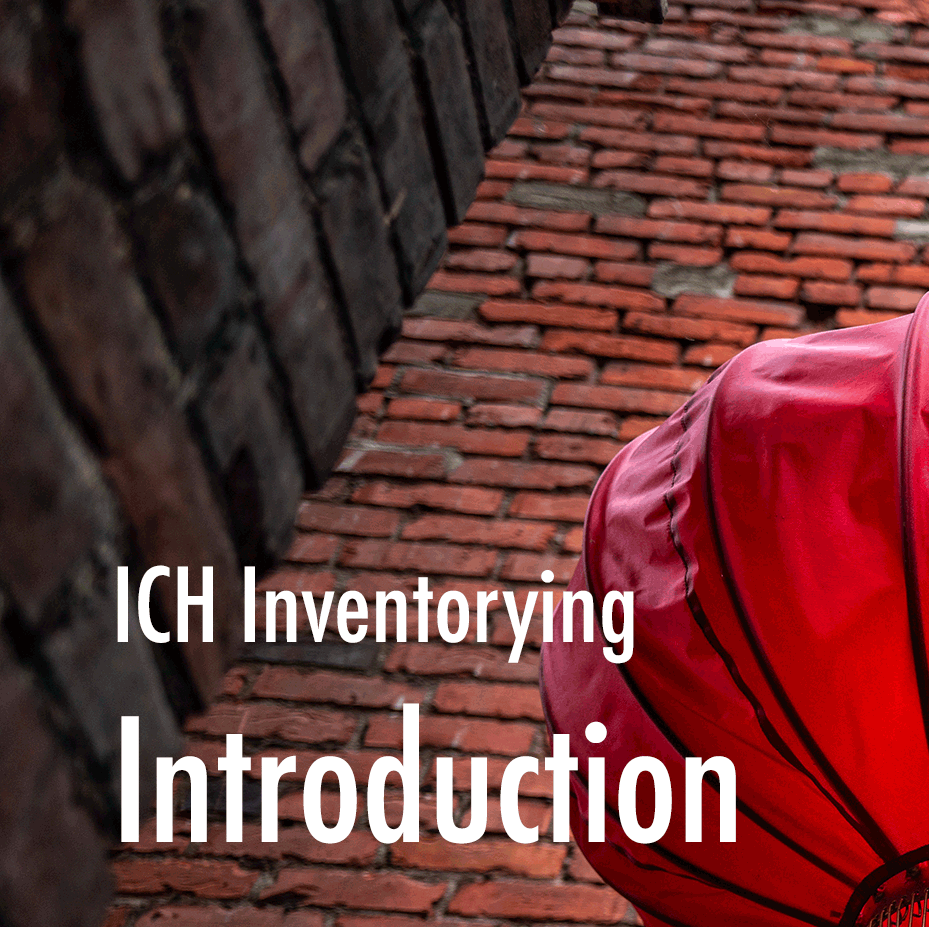 |
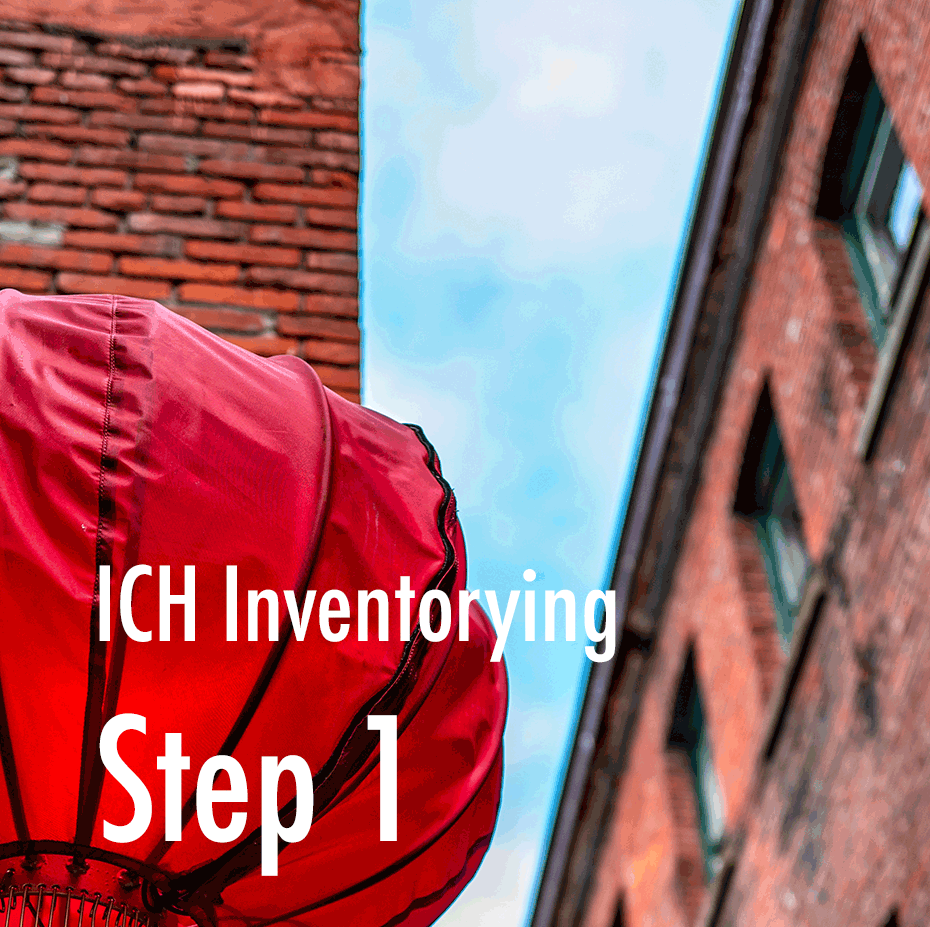 |
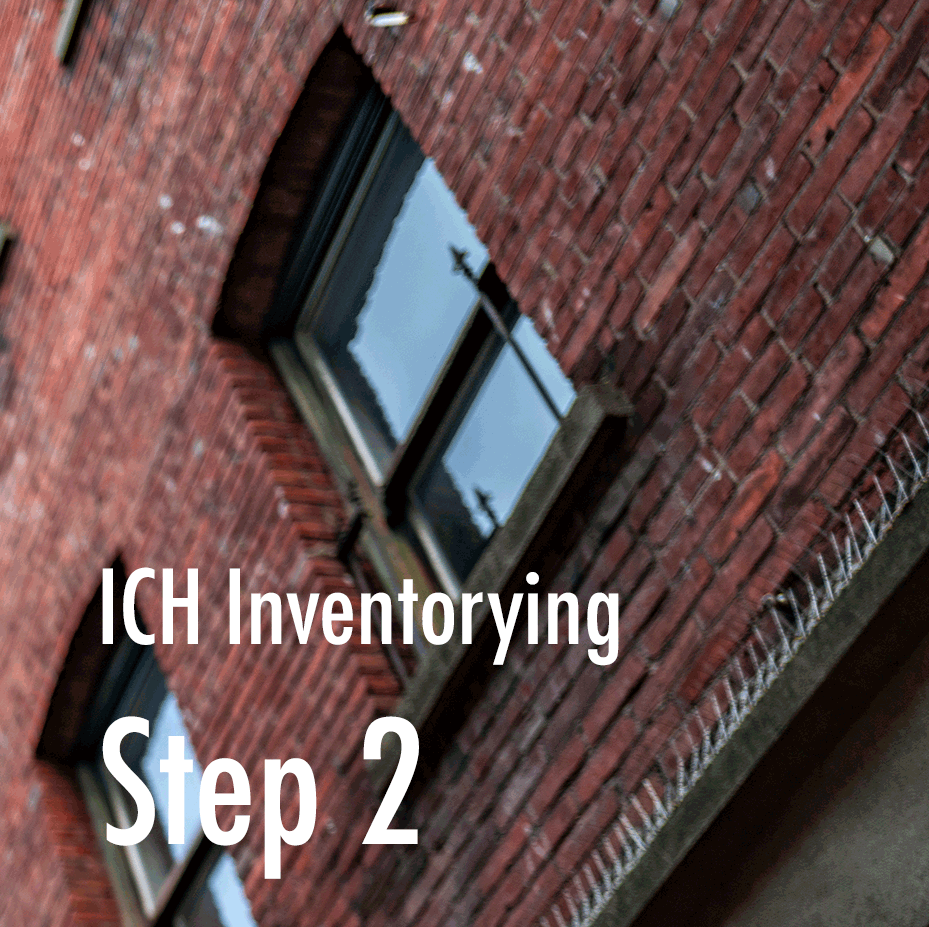 |
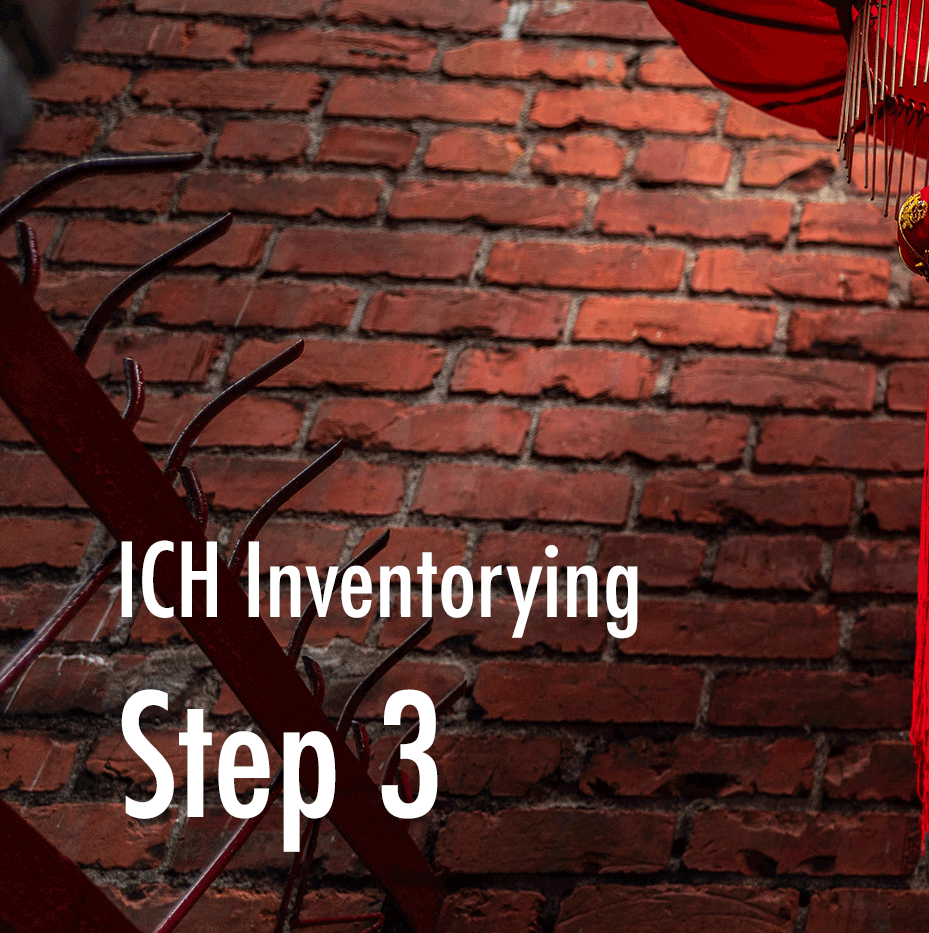 |
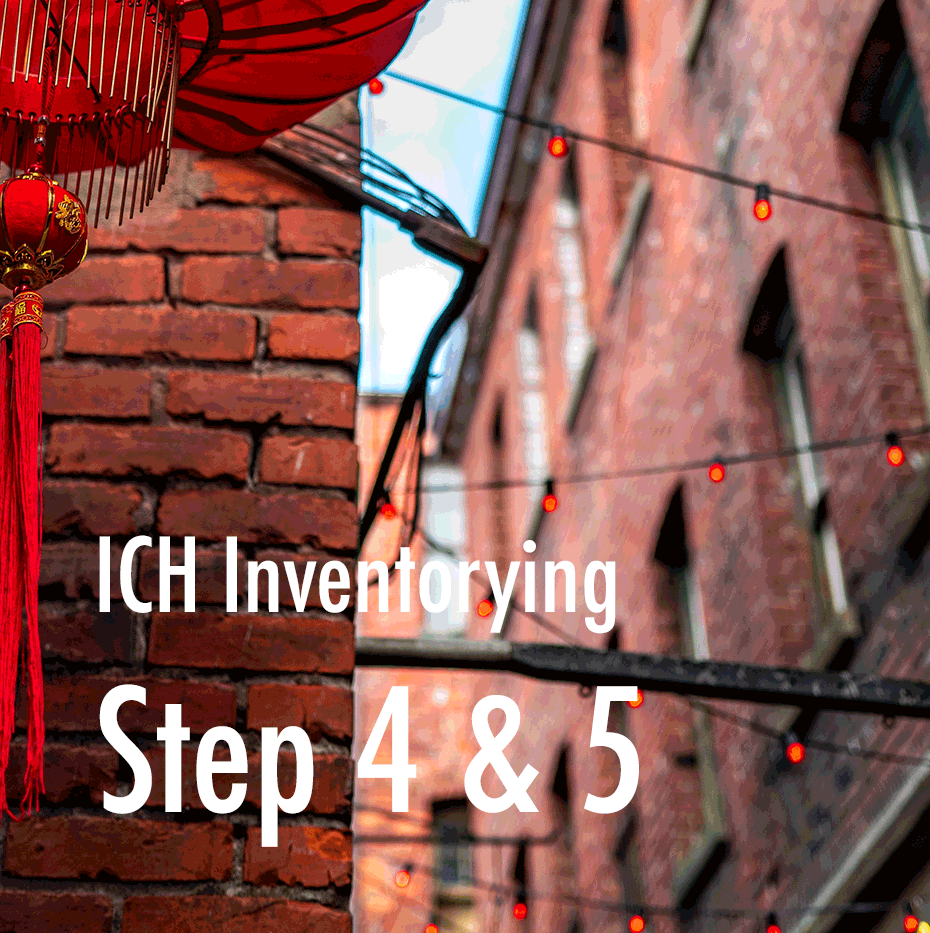 |
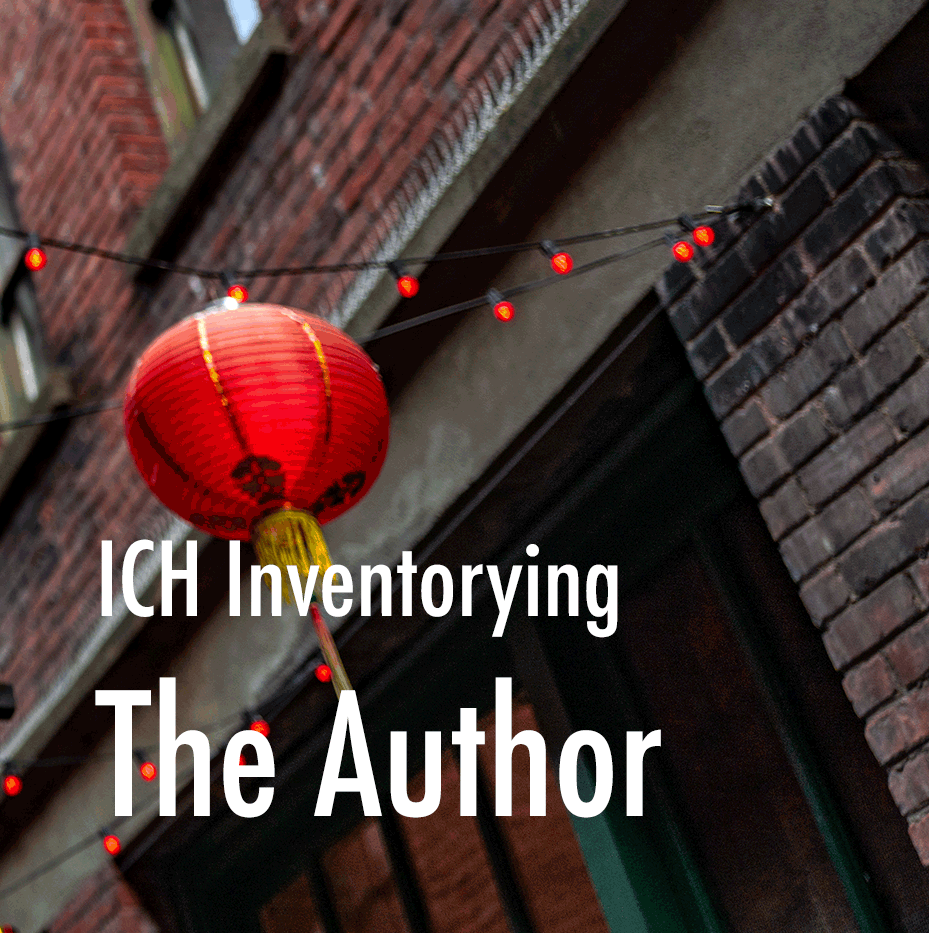 |
Step 3: Data search
The data search is composed of two stages: office work to search for secondary information and field activities which consist of interviewing people, meeting with community groups, and documenting through annotations, filming, drawings, and photographs.
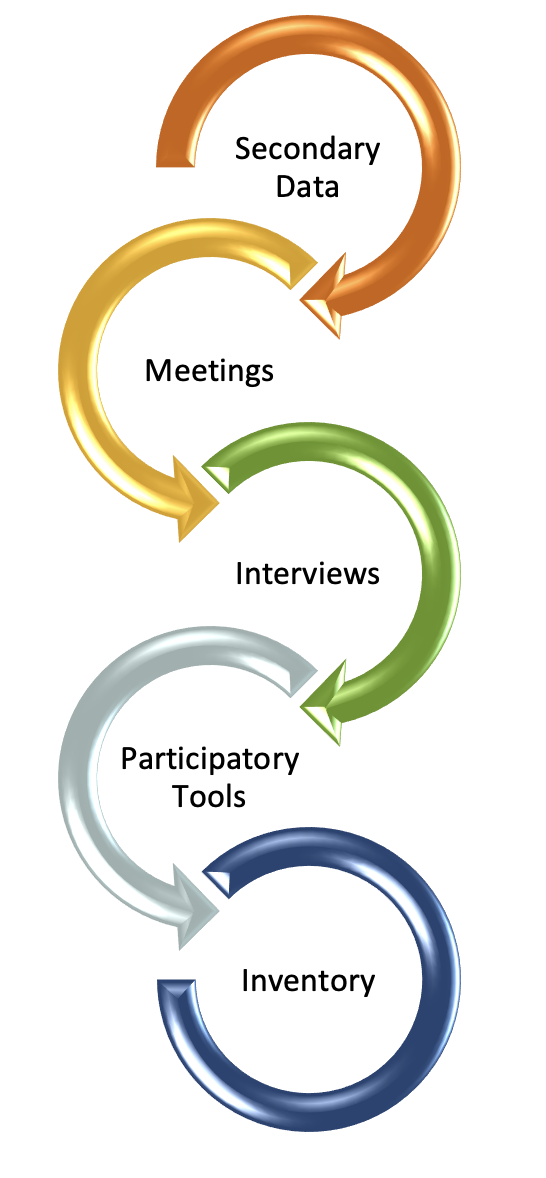 The secondary data search consists of gathering documentary information available in public archives, libraries, museums, schools, cultural institutions, universities, NGOs, and so on. It also includes the search for documents and photos that community members have in their homes. This kind of information helps us to understand the general contexts of the manifestations and their changes over the years.
The secondary data search consists of gathering documentary information available in public archives, libraries, museums, schools, cultural institutions, universities, NGOs, and so on. It also includes the search for documents and photos that community members have in their homes. This kind of information helps us to understand the general contexts of the manifestations and their changes over the years.
For fieldwork, there are many methodologies that can be applied, from individual interviews to meetings and group dynamics. As mentioned before, an interview guide and approved participatory appraisal tools can help in the elaboration of your own research script, which should be adopted according to each specific situation.
Participatory appraisal tools are efficient both for providing information about the manifestation and for ensuring dialogue among community members.
It is important to emphasize that, if the inventory is proposed by an institution outside the community, such as an NGO, it is essential that community members are recruited as part of the technical team responsible for conducting the inventory. To this extent, community members should participate in the entire process of preparing the interview scripts, and defining and implementing group activities.
Before the fieldwork, the team must define the division of individual and collective responsibilities for each activity.
Write down the information of each interview and meeting, always indicating who was responsible for the activity, who made the annotation, and the date. It is also important to indicate the name of the interviewed person and their contact information.
Remember this kind of information is considered sensitive, and, for this reason, it is crucial to guarantee its privacy.
To know more about participatory tools, see betterevaluation.org.
